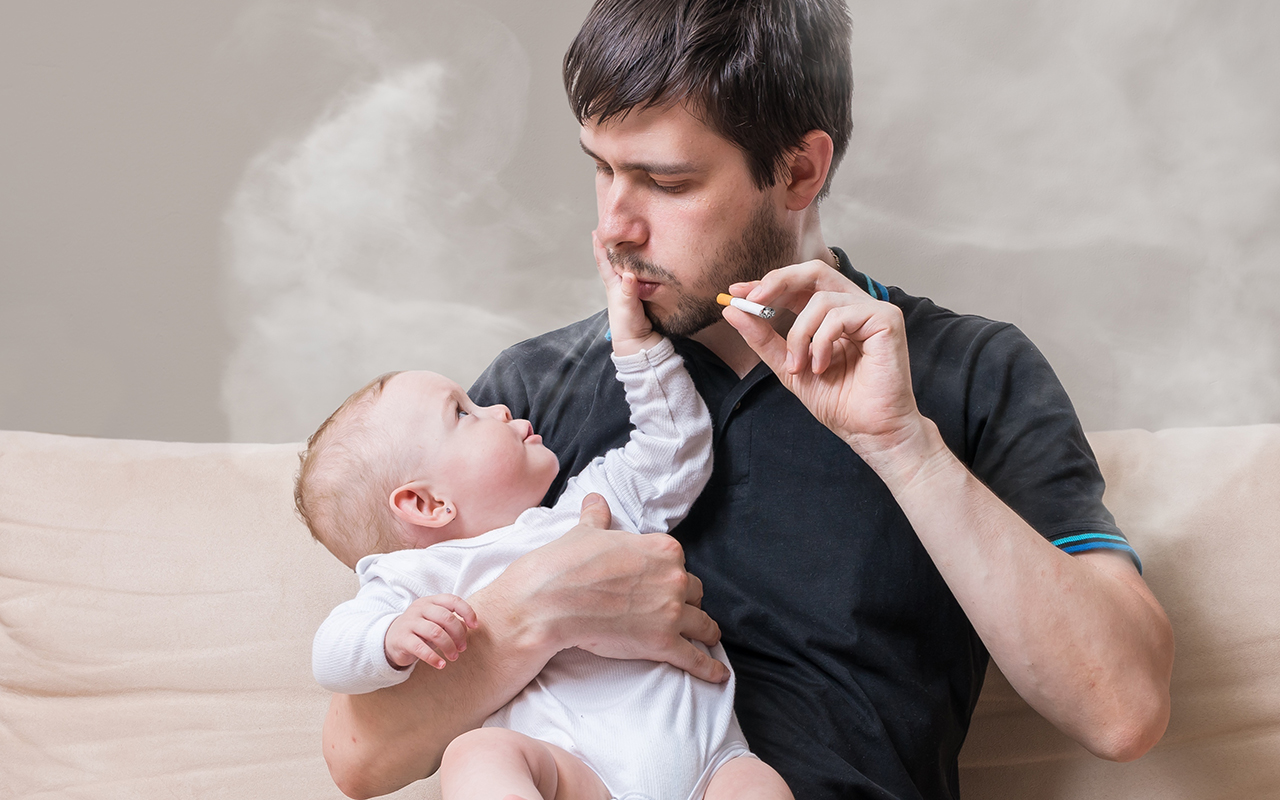Increasing tobacco taxes linked to lower infant deaths
Raising taxes on tobacco is associated with a reduction in neonatal and infant mortality, according to an analysis of 159 countries published in PLOS Global Public Health. The researchers from the Netherlands and the UK used data spanning 2008 through 2018 from 159 countries on neonatal and infant mortality, tobacco taxation, and other related variables including gross domestic product, fertility rate, education and access to drinking water. On average, across all countries studied, the neonatal mortality rate was 14.4 and the infant mortality rate was 24.9 per 1000 live births. These rates were higher in low and middle-income countries than high income countries – with 33.2 children aged under 1 year, including 19.0 newborns, in every 1000 dying each year in low and middle-income countries, compared with 3.7 newborns and 5.6 children aged under 1 year in every 1000 in high income countries. The average total tax on cigarettes relative to retail price was 49.1%, with only 11.2% of low and middle-income countries and 42.1% of high income countries achieving the recommended 75% taxation. The team found that a 10 percentage-point increase in total cigarette tax was associated with a 2.6% decrease in neonatal mortality (95% CI, 1.9–3.2) and a 1.9% decrease in infant mortality (95% CI, 1.3–2.6). Based on the findings, an estimated 231 220 (95% CI, 152 658–307 655) infant deaths and 181 970 (95% CI, 135 679–226 377) neonatal deaths might have been averted in 2018 if all countries had at least a 75% cigarette tax rate. The study was not able to control for all potential confounders, but the authors suggested that the health impacts of taxation are likely mediated through decreases in prenatal and postnatal second-hand smoke exposure and decreased smoking during pregnancy.
What regulates the “glue” needed for nerve repair?
Researchers at the University of Queensland have identified a molecule essential for regulating the repair of injured nerves. In a study published in Science Advances, the researchers used the nematode worm Caenorhabditis elegans, which has long been studied by researchers for its ability to self-repair nerve cells, finding that the enzyme ADM-4 is an essential protein regulating the molecular glue, or fusogen, needed for nerve repair. “We have shown that animals lacking ADM-4 cannot repair their nerves by fusion,” lead author Professor Massimo Hilliard said. “ADM-4 must function within the injured neuron to stabilise the fusogen EFF-1 and allow the membranes of the separated nerves to merge. An exciting part of this discovery is that ADM-4 is similar to a mammalian gene, opening up the possibility that one day we may harness this process in humans.”
True impact of homeopathy may be “substantially” overestimated
Poor research practice suggests that the true impact of homeopathy may be substantially overestimated, finds an analysis of the current body of evidence on the effectiveness of this type of complementary medicine, published in BMJ Evidence Based Medicine. Many clinical trials haven’t been registered, with the main outcome changed in a quarter of those that have been. And many remain unpublished. All this indicates “a concerning lack of scientific and ethical standards in the field of homeopathy and a high risk for reporting bias,” wrote the Austrian researchers. Since 2002, almost 38% of registered homeopathy trials have remained unpublished, and 53% of published randomised controlled trials (RCTs) have not been registered, the review found. Retrospective registration was more common than prospective registration. Furthermore, 25% of primary outcomes were altered or changed compared with the registry. Although the authors could detect a statistically significant trend toward an increase of registrations of homeopathy trials (P = 0.001), almost 30% of RCTs published during the past 5 years had not been registered. A meta-analysis stratified by registration status of RCTs revealed substantially larger treatment effects of unregistered RCTs (standardised mean difference [SMD], −0.53; 95% CI, −0.87 to −0.20) than registered RCTs (SMD, −0.14; 95% CI, −0.35 to 0.07). Together, these practices likely affect the validity of the body of evidence of homeopathic literature and may overestimate the true treatment effect of homeopathic remedies, they concluded.
mRNA vaccines safe for people with impaired immunity
Italian research published in Frontiers in Oncology has found that two popular mRNA-based vaccines are well tolerated by people who are immunocompromised, such as patients with cancer. The trial found that the vaccines were safe and did not cause unexpected adverse events in a group of patients with various cancers and neurological and rheumatological conditions that are associated with immunosuppression. The researchers enrolled 566 high risk patients and administered two doses of either the Pfizer–BioNTech or Moderna mRNA COVID-19 vaccine as normal. The patients reported any adverse events in a questionnaire, and the questions focused on the first week after each dose. The most common reported side effects at the injection site included pain, swelling and a rash, whereas the most common general side effects included tiredness, headache, chills and muscle pain. Such side effects are also commonly reported by people with a fully functioning immune system who have received the vaccine. The study also found no evidence that the underlying disease of the patients was affected, and vaccination did not interfere with the patient’s ability to undergo standard treatment for their conditions.

 more_vert
more_vert
This should also apply to alcoholic beverages with a sugar content higher than 10%